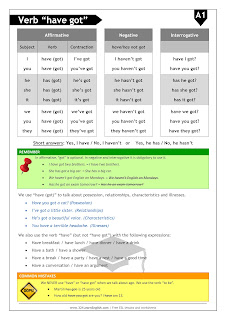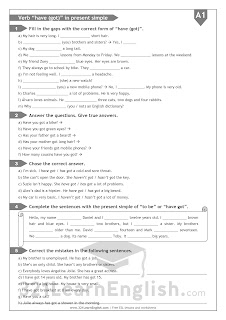
We use the verb “have (got)” to talk about possession, relationships, characteristics and illnesses.
Some examples are:
• Have you got a cat? (Possession)
• I’ve got a little sister. (Relationships)
• He’s got a beautiful voice. (Characteristics)
• You have a terrible headache. (Illnesses)
Remember that "have got" is often used in spoken English, while in written English, "have" alone is more common. For example, instead of saying "I have got a car," you could also say "I have a car." Both are correct, but the use of "have got" is more informal and commonly used in everyday conversation.
• Have you got a cat? (Possession)
• I’ve got a little sister. (Relationships)
• He’s got a beautiful voice. (Characteristics)
• You have a terrible headache. (Illnesses)
Remember that "have got" is often used in spoken English, while in written English, "have" alone is more common. For example, instead of saying "I have got a car," you could also say "I have a car." Both are correct, but the use of "have got" is more informal and commonly used in everyday conversation.

















